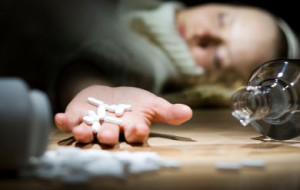Drug is a substance that changes person’s physical or mental state when ingested or introduced into the body. People take drugs for various reasons such as for medical or recreational purposes. When any drug is introduced into the body in quantities greater than recommended or prescribed is called drug over dosage. Its effects are different i.e., halting or chronic based on people’s response.
Drug over dosage can involve people of any age group, either children (even crawling children) or adolescence or elderly people. Drug over dosage can be accidental or intentional.
Accidental: It is majorly observed in younger children and elderly people due to impaired mental ability.
Intentional: It is basically observed in the adolescence, especially when underlying some medical health conditions (depressed or unhappy), or for fun and excitement, or sometimes being in association with drug addicts etc.
Unintentional: This will be mostly due to negligence to visiting doctor for ill health and taking drugs suggested at pharmacy. Sometimes it might be due to poverty.
Symptoms
Sometimes high doses of some drugs might tend to have a lethal or minimum effects, while smaller doses of some drugs might lead to sever/ chronic effects, possibly death. In some cases it is difficult to predict the symptoms of drug over dosage. Some of the possible symptoms of drug overdose are:
- Asthma attack and chest pain.
- Sleepiness, confusion, and coma in common, but in severe cases, it might lead to aspiration.
- Cool and sweaty skin or hot and dry skin.
- Abdominal pain, nausea, vomiting and diarrhea are possible.
- Blood vomits or blood in bowel movements can be life threatening.
- Some specific drugs may damage some specific body organs.
Drug over dosage testing
It can be physically examined by the behavioral changes and tested by lab tests based on organ systems, specific drug levels in the blood etc. Drug Screening is also preferable.
Treatment
Treatment for drug over dosage depends on the type of drug, quantity, time at which drug taken. Some of the most common treatment methods are:
- Washing stomach with lavage to remove unabsorbed drug.
- Activated charcoal is used to remove drug dose from blood, which get settled in the stomach & intestine and finally released through stool.
- In some cases, physical restraints and some sedating medications show better results.
- Sometimes patient intubation is followed to protect lungs during detoxification process.
- In some cases antidote are used to minimize the effect of drug over dosage.
Prevention
- Consulting doctor when ill.
- Avoid keeping medicines in the reach of children.
- Proper psychiatric intervention must be given to persons underlying mental health conditions.
- Elderly persons must be explained about how to take their medication and how to recognize one medicine from another etc.
“Prevention is always better than cure”.

